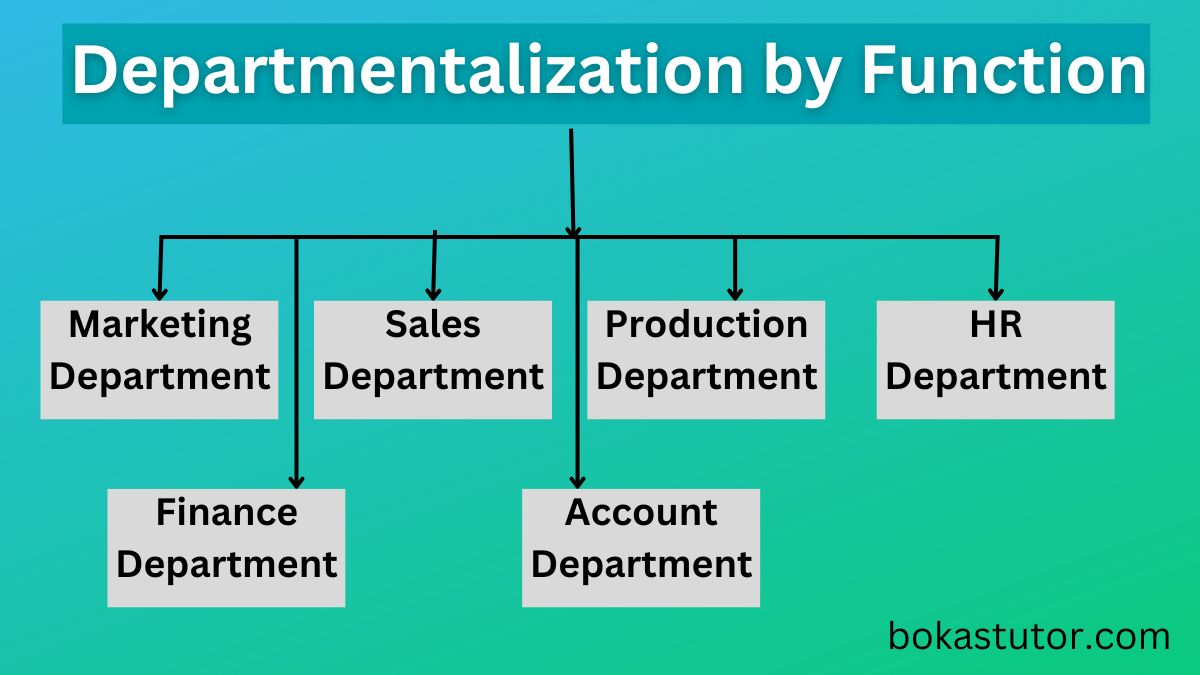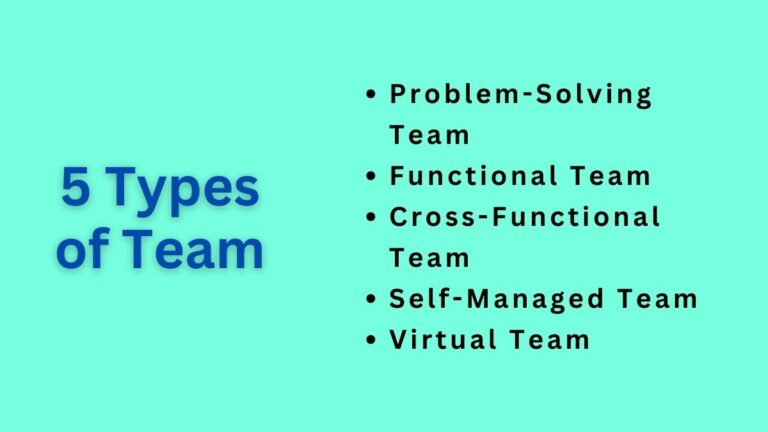What is Departmentalization By Function? Definition, and Pros/Cons
What is Departmentalization By Function?
Departmentalization by function, also called, functional departmentalization is the most common form of departmentation. It is the process where one type of activity with a similar nature is grouped into one unit/department and other types of activities into other departments.
Functional departmentation promotes division of work and provides benefits of specialization at the job. Under this, departments are created based on organizational functions rather than managerial functions (planning, organizing, staffing, etc.).
From company to company departments may differ but the most common departments created under functional departmentation include production, sales, marketing, human resource management, R&D, account, finance, procurement, customer service, etc.
Once the departments are created, in each department, a manager is appointed, called a department manager, who is responsible for managing and directing subordinates working under him/her. The ultimate decision-making power remains at the top executives and all department managers should report their respective department’s performance to the executives.
Each department is given a specific task considering members’ skills, capacity, and experience in it. All departments work independently but should contribute to the growth and expansion of the business.
Advantages and Disadvantages Departmentalization by Function
Related: Time Departmentalization
Functional departmentalization provides various benefits to the organization by which greater performance and productivity are achieved. However, it is not far from its disadvantages. Some of the pros and cons of functional departmentation are mentioned below:
Advantages:
- Specialization – Under departmentalization by function, the concept of division of work is followed. As such, the complex task is broken down and employees are assigned only specific task that perfectly matches their interests and capability to perform. Employees become more specialized when they do the same task repetitively.
- Economies of Scale – Since specific employees only do specific tasks more productivity is achieved at minimum input.
- Efficiency – Efficiency is a measure that determines how the work is completed at minimum time and minimum costs. Because of the division of work, under this departmentalization method, workers’ efficiency and productivity are increased.
- Better Resource Utilization – As it facilitates better coordination and assignment of the right task to the right employee along with human resources other organizational resources are optimally utilized in the direction of goal achievement.
- Better Customer Service – Under departmentalization of function, some organizations also create a specific department usually named the customer service department which especially aims to better serve customers.
- It facilitates ease in coordination, communication, and supervision of activities.
- Decision-making and line of communication become simple and clear to understand.
Disadvantages:
- Delay in Decision-Making – Because of the bureaucratic nature and centralized authority in functional departmentalization, there is a high possibility of delay in decision-making.
- May Decrease Organizational Efficiency – Managers may have a tendency to focus more attention only on their own departments. Competition between departments may decrease organizational efficiency.
- May Increase Boredom – There is the possibility of boredom on the job when an employee has to do the same task daily.
- Less Creativity and Innovation – Employees are not allowed to think beyond their repetitive tasks. Their only job is to do the same job and return home. It does not promote creativity and innovation in the workplace.
- Unresponsive to Changing Business Environment – Since functional departmentalization does not promote thinking out of the box, this method can not meet the demands of changing business settings.
Read Next: Territory Departmentalization
Sajan Kushmi is a content writer with more than 4 years of experience. He holds BIM Degree. He write on the topics related to Management, Marketing, and Entrepreneurship.






